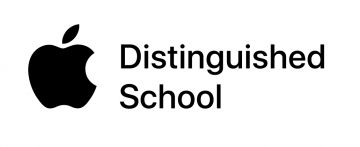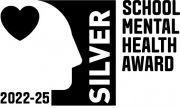ICT
ICT & Business Department
In delivering these courses the department encourages learners to:
- engage actively in the study of business and digital technology in order to develop;
- be effective and independent learners and critical and reflective thinkers with enquiring minds;
- recognise that their knowledge of business and the use of software applications provide a sound basis for a future role as employee or employer;
- understand the changing role of digital technologies in business and economic activities;
- develop skills and understanding in the use of software applications;
- use software applications to develop digital solutions to enhance business
- activities; and be inspired by following a broad, coherent, satisfying and worthwhile course that could lead to further study.
Pearson BTEC Level 1/Level 2 First Award in Information and Creative Technology
BTEC Firsts in Information and Creative Technology can help you take your first steps towards a career in the digital industry. You’ll learn the skills to produce IT systems and software, websites and mobile apps, and video, graphics and animation.
This qualification is a Technical Award equivalent in size to one GCSE. It is designed for pre-16 students working at level 2 who want to include a study of technology as part of their broader Key Stage 4 curriculum. It provides an introduction to some of the key themes within the industry, for example enabling students to explore digital devices and the technology that enables them to share and exchange information.
Students will develop and apply their knowledge of the sector while also developing a range of relevant practical, technical and creative skills. They will gain a broad understanding and knowledge of the industry and will have the opportunity to apply their knowledge in new, practical and creative contexts.
This qualification provides students with an engaging and stimulating introduction to the fundamentals of information technology. They have the opportunity to gain the practical and creative skills, knowledge and understanding building from their own experiences of technology and by carrying out projects. They have the opportunity through optional units to extend this learning further to create, test and review digital products, or develop, test and review websites and databases.
Compulsory units
Students must take two core units: unit 1, which is externally assessed through an onscreen, on-demand examination, and unit 3, which is internally assessed.
Unit 1, ‘The Online World,’ starts with students’ own experiences and quickly extends to online services and the technology that supports them.
Unit 3, ‘A Digital Portfolio’ is compulsory; it gives students the opportunity to design,
create, test and review a project.
This core makes up 50% of the qualification and the remaining 50% consists of a choice of two (from seven) optional units.
Optional units
The optional units reflect the breadth of opportunity within the IT sector:
Unit 4: Creating Digital Animation
Unit 5: Creating Digital Audio
Unit 6: Creating Digital Graphics
Unit 7: Creating Digital Video
Unit 9: Spreadsheet Development
Unit 10: Database Development
Unit 13: Website Development
CCEA GCSE Business & Communications Systems
Unit 1:
Software Applications for Business
External computer-based examination
2 hours- Students complete tasks using a range of software applications. 40%
Unit 2:
The Business Environment
External written examination- 1 hour- Structured questions- 35%
Unit 3:
Developing Digital Solutions
Controlled assessment
Students project manage and develop a digital solution for a given problem within a business context.
Teachers mark the tasks, and we moderate the results. 25%





